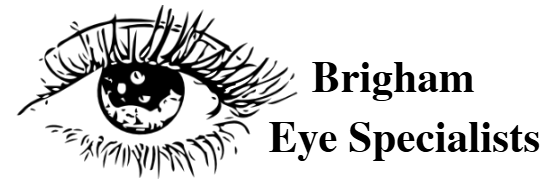
Amblyopia, commonly known as "lazy eye," is a condition that affects the development of vision in children. It occurs when one eye fails to develop normal visual acuity, often due to a refractive error or other underlying eye condition. This can lead to the brain favoring one eye over the other, resulting in decreased vision in the affected eye. Amblyopia is a common childhood eye disorder, affecting up to 3% of children. It is crucial to understand this condition and take proactive steps to prevent it, as early detection and treatment can significantly improve the chances of restoring normal vision.
What Causes Amblyopia?
There are several potential causes of amblyopia, including:
- Refractive Errors: Conditions such as nearsightedness (myopia), farsightedness (hyperopia), or astigmatism can cause one eye to have significantly better vision than the other, leading to amblyopia.
- Strabismus: Misalignment of the eyes, also known as "crossed eyes" or "wandering eye," can disrupt the brain's ability to process visual information from both eyes, resulting in amblyopia.
- Congenital Cataracts: Cataracts present at birth can obstruct light from reaching the retina, causing the brain to favor the unaffected eye and leading to amblyopia.
- Ptosis: A drooping of the upper eyelid can block the visual axis, preventing the brain from receiving clear visual input from the affected eye.
Understanding the potential causes of amblyopia is crucial in developing an effective prevention and treatment plan.
Signs and Symptoms of Amblyopia
Identifying the signs and symptoms of amblyopia is essential for early detection and intervention. Some common signs and symptoms include:
- Decreased vision in one eye
- Difficulty with depth perception or 3D vision
- Frequent eye turns or misalignment
- Squinting or closing one eye
- Difficulty with hand-eye coordination
- Headaches or eye strain
It's important to note that in some cases, children with amblyopia may not exhibit any obvious symptoms, making regular eye exams even more crucial.
Preventing Amblyopia through Regular Eye Exams
The key to preventing and treating amblyopia is early detection through regular eye exams. The American Optometric Association recommends that children have their first comprehensive eye exam at 6 months of age, followed by additional exams at 3 years old and 5-6 years old, or as recommended by their eye care professional.
During these eye exams, your child's eye doctor will assess their visual acuity, refractive errors, eye alignment, and overall eye health. If any issues are identified, the doctor can then develop a customized treatment plan to address the underlying cause and prevent the development of amblyopia.
Some common treatment options for amblyopia include:
- Patching Therapy: Covering the stronger eye with a patch forces the brain to use the weaker eye, stimulating its visual development.
- Atropine Eye Drops: Applying dilating eye drops to the stronger eye can temporarily blur its vision, encouraging the use of the weaker eye.
- Corrective Lenses: Prescribing glasses or contact lenses to correct refractive errors can help equalize the visual input from both eyes.
Early intervention is crucial, as the brain's visual pathways are most adaptable during the critical developmental years of childhood. By addressing amblyopia at a young age, you can greatly improve your child's chances of achieving normal, binocular vision.
Schedule Your Child’s Eye Exam with Brigham/Farr West Eye Specialists
Amblyopia is a treatable condition, but it requires vigilance and proactive steps to prevent. Regular eye exams are the cornerstone of amblyopia prevention, allowing eye care professionals to identify and address any underlying issues before they lead to vision problems.
Schedule your child's comprehensive eye exam today with our eye care specialists. Early detection and treatment of amblyopia can make all the difference in your child's visual development and long-term eye health. Visit Brigham Eye Specialists at our office in Brigham City, Utah. Call (435) 734-2097 to book an appointment today.




